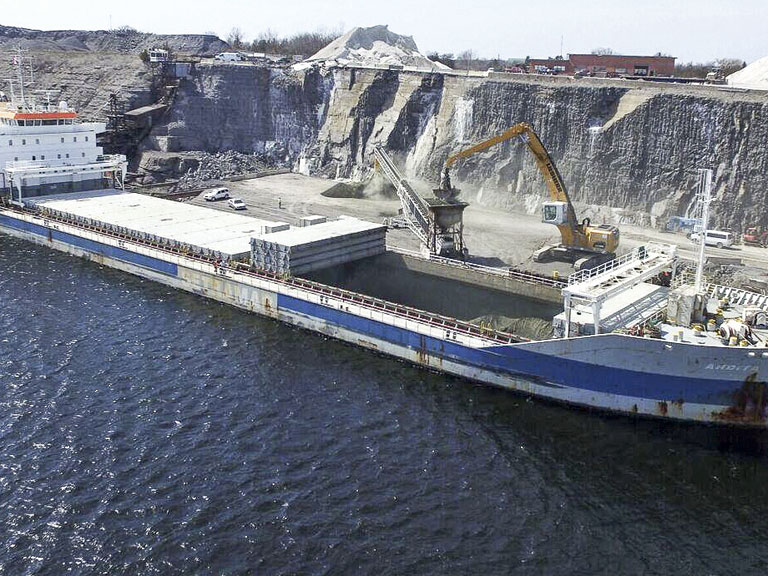County News
Persistent worries

Dozens of Picton Bay residents urge council to retract support for Picton Terminals.
For the most part, the County’s committee of the whole meetings go unnoticed by the general public, the nave of Shire Hall’s council chambers mostly empty, save for reporters and the odd concerned citizen.
That wasn’t the case last Thursday, as dozens of people crushed into the chambers, the overflow ushered into a nearby meeting room to view the proceedings on a television screen.
Several topics were up for discussion that may have piqued public interest, but the majority of residents were there in support of Save Picton Bay, a group of residents concerned about the health of the waters that supply the town of Picton, and especially the effect the Picton Terminals could have on those waters.
Although neither the Bay, the group, nor the Terminals were on the agenda for the committee of council to discuss, three members of the group presented deputations to the County’s politicians outlining their concerns with the company’s activity and its impact on the health of the local environment.
The first Save Picton Bay deputation on the agenda came from David MacKinnon. He expressed concern about the ripple effect to local properties as the Terminals expanded their business.
“Picton is a very poor location for expanded port facilities at any serious scale,” MacKinnon told council, pointing out the town is far from any freeway, air transport facility or border, and moving materials to such locations would mean heavy wear on the County’s infrastructure. “Creating a regional port in Picton or expanding operations generally would involved increases in traffic on Highway 49 as well as the two main bridges to the County.”
MacKinnon was followed by David MacKay, who brought up the issue of water quality, expressing concern about the results of careless storage of materials on the Terminals site.
MacKay recounted an experiment he undertook with a university chemistry student to test the runoff coming into Picton Bay from the Terminals. They found that in just half a litre of water, there were about 15 millilitres of salt. The duo determined that meant about 2.7 tonnes of salt per day. There was visual evidence, too: dead frogs and salamanders by the Bay, rocks changing colour from grey to yellow.
And that wasn’t the worst of it. MacKay then discussed the findings from the Ministry of the Environment (MOE)’s study.
“The Ministry of Environment also expressed concerns about cyanide. Cyanide is an agent that is used in road salt to prevent it from clumping,” MacKay said. “They expressed concerns about cyanide going into Picton Bay because it is a relatively small embayment, and is used as the source of drinking water for the town of Picton.”
MacKay was referring to a report submitted to the MOE officer involved with the Terminals case by surface water scientist Victor Castro on November 15, 2015.
In that report, Castro states that there is a high likelihood of sodium ferrocyanide contamination in the bay, and that, when mixed with hydrogen, can form hydrocyanic acid, “a chemical that is highly toxic to aquatic life.”
Castro had recommended that future water sample analyses should include free cyanide.
The MOE took another sample for study in 2016, but the results of that study have not yet been released.
Finally, Victor Lind, a retired planner, spoke to council, outlining many different concerns the Save Picton Bay group has with the Terminals, including its decision to withdraw from a rezoning application that would address many of the environmental and land use issues.
“The public may not be aware that the municipality has no legal obligation to enforce its own bylaws,” Lind told council. “But we believe the County has a moral obligation to enforce its own bylaws. Especially in cases like this.”
Lind also submitted a letter from environmental lawyer Eric Gillespie, to council. Gillespie has made a name for himself locally by working with the group that successfully fought the development of industrial wind turbines on the County’s south shore.
The letter gave Gillespie’s legal opinion about the legality of the Terminals’ activity, stating, “there is no law or evidence supporting the current non-extractive uses of the subject property. Therefore, they appear to be illegal.”
According to staff, the County is consulting with their solicitor, but currently believes the Terminals are operating as legal non-conforming. Furthermore, CAO James Hepburn says the company is complying with the County’s requests, having moved a store of road salt off land zoned as rural residential and committing to replace a stone berm with a seeded one to comply with property setback bylaws.
Council listened to all three deputations, but didn’t respond, nor did the group discuss an agenda to respond at a later date. Instead, they simply voted to accept the deputations and moved on to another matter.
But as a majority of attendees stood up and left the chambers and Shire Hall following Lind’s deputation, the issue concerning that group of residents was made loud and clear.

Picton council and in particular the Mayor were quick to endorse Picton Terminals with little information, fact checking or legal review in an earlier council meeting in 2016. It speaks volumes about the ignorance and partiality of council that now presented with major concerns about Picton Terminals backed up with reputable information by many of Picton residents, that council now decides to delay any decision withdrawing their support citing their need to review the information and consult their solicitor.